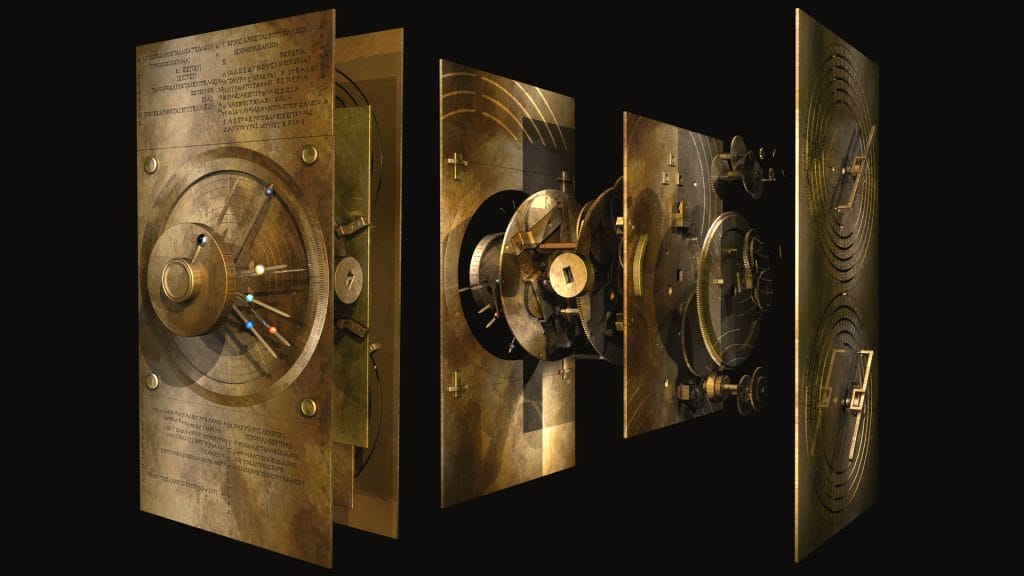We keep thinking about the technology developed throughout the history that has brought us to these heights. But, one must not ignore that we have lost quite a hell lot of technological inventions as well, especially the library of Alexandria. To provide you with the sufficient knowledge and information, we have collected some of the most amazing inventions of ancient times that no longer exist in the present world of science and technology.
5. Damascus Steel
Conventionally used to make swords and knives, this Damascus steel was a solid metal used in the Middle East from 1100-1700 AD. It was robust enough that the blades forged from this steel were said to slice rocks and metals in half. It is believed that it was created using wootz steel imported from India and SriLanka. This steel was produced using a process that weaved cementite and soft iron to form the hard and flexible metal. Modern experiments have failed to replicate the technology of Damascus Steel.
Source: Sagen und Legenden
4. Roman Cement
Concrete is the most commonly used building material in the world. But, what we use today was developed in the 18th century. Archeological remains of ancient times confirm that those structures and buildings were much stronger than the buildings today. The Persians, Egyptians, Assyrians, and Romans used that concrete to build amazing structures. The Romans first perfected the recipe of concrete mixing burnt lime with crushed rocks and water. The Pantheon, the Colosseum, and the Aqueducts are the most famous Roman structures that still exist.
Source: Ancient Facts
3. Greek Fire
The Greek fire was the earliest of incendiary weapons used by the military of Byzantine Empire. It was the kind of fire that continues to burn even in water. The fire was poured into jars and thrown at the enemies like grenades during the 11th century, reportedly repelling two sieges of Constantinople by Arab invaders. Giant bronze tubes were mounted on warships to spray the fire at enemies’ vessels. Modern theories propose that it was a mixture of petroleum with chemicals like quicklime, niter, or sulfur.
Source: All that is interesting
2. Apollo Space Program Technology
You would not imagine that we could lose a technology that is barely 50 years old. Sometimes, technology is lost due to incompatibility. The Gemini and the Apollo space missions were the most successful missions of NASA. In the July of 1969, NASA succeeded to land on the moon as well. But why can’t they do it again then?
The technology is not lost in the real sense. The Saturn rockets and their parts are still available. However, scientists are unable to understand that how all of it worked at that time. There is no proper record of the schematics from the original program. Private contractors designed a lot of different parts for the mission. In the rush of competing with the USSR, no proper record was maintained. When the program ended, all the engineers who worked on the mission changed their paths while taking away the relevant records with them. The existing records are so disorganized that NASA has begun to reverse engineer the parts lying around in the junkyards.
1. The Antikythera Mechanism
In the early 1900s, a bronze machine was discovered by divers off the coast of the Greek island Antikythera. The mysterious archeological artifact consists of a series of over 30 gears, cranks, and dials. The real purpose of the Antikythera mechanism is still unknown. However, it seems like it was a primitive clock to calculate lunar phases and solar years by making a chart of the astronomical positions of the sun, the moon, and other planets. The device was discovered from the remains of a shipwreck dated back to 1st or 2nd century B.C. It is considered as the oldest analog computer.
Source: Missed in History
These ancient inventions were surely quite beneficial and interesting!

